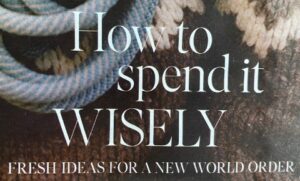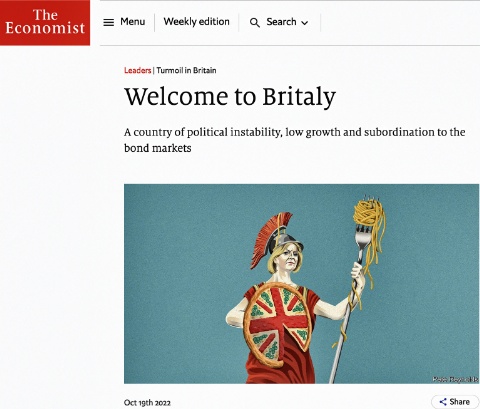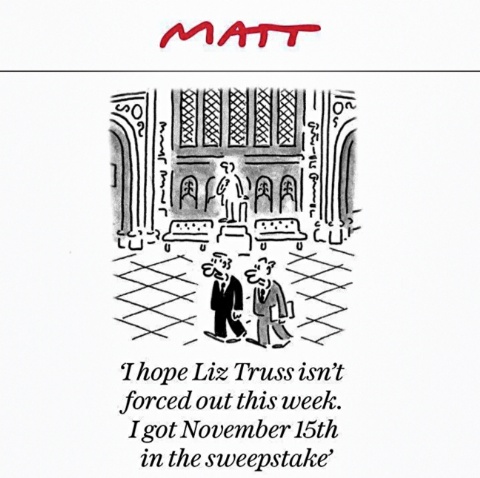Into the light
Leaving St Pancras station.
Quote of the Day
”Now that you’ve got me right down to it, the only thing I didn’t like about The Barretts of Wimple Street was the play.”
- Dorothy Parker, reviewing the play in the New Yorker in 1931.
Musical alternative to the morning’s radio news
Jerry Lee Lewis | Slippin’ and Slidin’
Jerry Lee’s death poses a problem for those of us who loved his music (and who remember what a sensation he was when he first burst through). In a way, it’s the same problem that faces anyone who admired Ezra Pound, Ernest Hemingway, Philip Larkin, Evelyn Waugh, Hunter S. Thompson,…: great artists, terrible people.
Many of the obituaries have tried to strike a balance in summing up Lewis. The Guardian’s obituarist had a pretty good shot at it:
Lewis embodied pinched obduracy, brooding, malevolent ignorance, violent unreliability and borderline madness. He abused women, played with guns and shot at men; he drove the highways of the south blind drunk with his loaded pistol on the dashboard. Yet in the vivid contrast between the meanness of the man and the grandeur of the artist, the common denominators were his phenomenal energy and admirable, all-conquering self-belief.
He will be remembered for his lifetime of hillbilly delirium, but he will be renowned for his seizure of the musical moment at the dawn of rock’n’roll, when an incomparable talent was his intoxicant and ours: when he shot up the old order and played out his defiant dramas on the keyboard, in the studio and on the stage.
In an email, Ian Cole did a good job at rescuing the musician from the slow-motion-car-crash of his life.
The reports and obituaries are full of what made him notorious with hardly a word about the particular characteristics that made his piano playing and singing so sublime. In the case of his singing, I was always struck by how, particularly in his early days at Sun, he sailed up through a chord on a word which gave it three, four or more notes. His piano playing ranged from the ‘pumping’ major to sixth boogie to delicate flourishes and right hand thumb to little finger trills and controlled glissandi where you have to start and finish on the correct note.
Ian added a link to a recording that he thinks exemplifies those qualities. It does, but it’s not the one that I remember best — which is why I chose mine.
Long Read of the Day
Welcome to hell, Elon You break it, you buy it.
Nice brisk tutorial for the world’s latest media mogul.
You are now the King of Twitter, and people think that you, personally, are responsible for everything that happens on Twitter now. It also turns out that absolute monarchs usually get murdered when shit goes sideways.
Here are some examples: you can write as many polite letters to advertisers as you want, but you cannot reasonably expect to collect any meaningful advertising revenue if you do not promise those advertisers “brand safety.” That means you have to ban racism, sexism, transphobia, and all kinds of other speech that is totally legal in the United States but reveals people to be total assholes. So you can make all the promises about “free speech” you want, but the dull reality is that you still have to ban a bunch of legal speech if you want to make money. And when you start doing that, your creepy new right-wing fanboys are going to viciously turn on you, just like they turn on every other social network that realizes the same essential truth.
Actually, there’s a step before trying to get the ad money: it turns out that most people do not want to participate in horrible unmoderated internet spaces full of shitty racists and not-all-men fedora bullies. (This is why Twitter is so small compared to its peers!) What most people want from social media is to have nice experiences and to feel validated all the time. They want to live at Disney World. So if you want more people to join Twitter and actually post tweets, you have to make the experience much, much more pleasant. Which means: moderating more aggressively! Again, every “alternative” social network has learned this lesson the hard way. Like, over and over and over again.
And…
The essential truth of every social network is that the product is content moderation, and everyone hates the people who decide how content moderation works. Content moderation is what Twitter makes — it is the thing that defines the user experience. It’s what YouTube makes, it’s what Instagram makes, it’s what TikTok makes. They all try to incentivize good stuff, disincentivize bad stuff, and delete the really bad stuff. Do you know why YouTube videos are all eight to 10 minutes long? Because that’s how long a video has to be to qualify for a second ad slot in the middle. That’s content moderation, baby — YouTube wants a certain kind of video, and it created incentives to get it. That’s the business you’re in now.
You get the message. I guess Musk will eventually get it too. Worth reading the whole thing. And see below.
Elon Musk running Twitter? It’s like giving a delicate clock to a monkey
My OpEd piece from Sunday’s Observer.
When the news broke that Elon Musk had finally been obliged to buy Twitter, the company he had tried – for months – to get out of purchasing, it reminded many observers of the 1979 commercial for Remington shavers in which the corporation’s president, Victor Kiam, proclaimed that he liked the electric razor so much “I bought the company.”
This was a mistake: Kiam merely liked the business he bought, whereas Musk is addicted to his company, in the sense that he cannot live without it. In acquiring Twitter, he has therefore forgotten the advice given to Tony Montana in Scarface: “Don’t get high on your own supply.”
In the immediate aftermath of the $44bn acquisition, though, he was as high as a kite. He showed up at the company’s San Francisco office carrying a kitchen sink. “Entering Twitter HQ – let that sink in!” he tweeted with a video of him in the lobby of the building…
Do read the whole thing.
My commonplace booklet
What birds can do that we cannot
This wonderful story rather puts us humans in our place.
A juvenile bar-tailed godwit – known only by its satellite tag number 234684 – has flown 13,560 kilometres from Alaska to the Australian state of Tasmania without stopping, appearing to set a new world record for marathon bird flights.
The five-month-old bird set off from Alaska on 13 October and satellite data appeared to show it did not stop during its marathon flight which took 11 days and one hour.
Tagged in Alaska, the bar-tailed godwit, Limosa lapponica, flew at least 13,560km (8,435 miles) before touching down at Ansons Bay in north-east Tasmania.
This Blog is also available as a daily email. If you think that might suit you better, why not subscribe? One email a day, Monday through Friday, delivered to your inbox. It’s free, and you can always unsubscribe if you conclude your inbox is full enough already!













